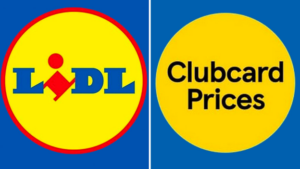
The Bar is not a man’s world
March 24, 2024
Negotiating Charter Parties: Construction and Interpretation of Contracts or Parties’ Intentions?
March 27, 2024Tesco vs. Lidl: Battle of the Blue & Yellow
The Tesco vs. Lidl case raises important questions about the power of branding, consumer perception, and the responsibilities of competitors in a competitive market.
The legal battle over Tesco’s Clubcard Prices logo had taken centre stage in the Court of Appeal of England and Wales. The case revolves around Lidl’s claim that Tesco’s design infringes on its trademark rights, alleging that Tesco is leveraging Lidl’s discount reputation to gain an unfair advantage in the market.

The High Court Ruling
Last April, the High Court ruled in favour of Lidl, stating that Tesco’s Clubcard Prices logo was indeed taking unfair advantage of Lidl’s well-established reputation for offering excellent value. The design similarities, including a yellow circle and blue background, were deemed to be misleading consumers whilst associating Tesco with Lidl’s pricing strategy.
Tesco’s Appeal
The three-day hearing, currently underway, represents Tesco’s appeal against the High Court ruling. In the Court of Appeal, Tesco has presented written arguments challenging the assertion of unfair advantage. Tesco claims that there is no evidence demonstrating a change in the economic behaviour of consumers, a crucial factor for finding unfair advantage.
Lidl’s Stance
Lidl remains steadfast in its position, asserting that over the past four years, Tesco has unduly taken advantage of Lidl’s long-standing reputation for excellent value. Lidl contends that Tesco’s actions have misled shoppers at a critical moment when support for customers is paramount.
The dispute reflects Lidl’s commitment to defending its brand and ensuring customers are not deceived regarding pricing.
Consequences for Tesco
Now that the Court of Appeal had mostly upheld the High Court decision, Tesco could face significant consequences. Under the terms of an injunction, Tesco would remove all infringing Clubcard Prices logos from its stores within nine weeks.
Tesco’s head of legal, Ryan Hetherington, disclosed in court that such an action would cost the supermarket over £7 million due to the widespread use of the logo, with over eight million signs displayed in stores.
Broader Implications
The Tesco vs. Lidl case raises important questions about the power of branding, consumer perception, and the responsibilities of competitors in a competitive market. The dispute underscores the potential impact of design similarities on consumer behaviour and clarifies how closely businesses can emulate each other’s branding without crossing legal boundaries.
Law Firm Involvement
In this complex legal battle, law firms play a pivotal role in shaping the outcome:
- Strategic Defence. Law firms representing Tesco are tasked with presenting a compelling defence against Lidl’s claims, challenging the requirement for evidence of a change in consumer behaviour and emphasising Tesco’s right to use its logo.
- Brand Protection. Lidl’s legal team focuses on defending the integrity of the brand, ensuring that Tesco’s actions do not undermine Lidl’s reputation for providing value to consumers. Brand protection involves presenting evidence of the alleged unfair advantage and potential harm caused to Lidl’s brand.
- Negotiation and Settlement. Throughout the process, legal teams may engage in negotiations to explore potential settlements that could mitigate the financial and reputational impact on both parties.
The outcome of the Tesco vs. Lidl case holds the potential to reverberate through both the legal and retail industries, shaping future dynamics in copyright and intellectual property disputes.
The ruling in favour of Lidl sets a precedent emphasising the importance of protecting distinctive branding elements and preventing competitors from capitalizing on established reputations. The ruling leads to heightened scrutiny in the retail sector regarding the design and implementation of logos, prompting businesses to reassess their branding strategies to avoid inadvertently encroaching on competitors’ intellectual property.
On the legal front, the landmark decision favouring Lidl strengthens the position of intellectual property owners, encouraging more robust enforcement actions against alleged infringements. Conversely, a ruling in favour of Tesco would have established a precedent allowing a degree of flexibility in logo design, signalling a more lenient approach to similarities in the marketplace.
The Tesco vs. Lidl legal saga highlights the intricate intersection of intellectual property, consumer perception, and corporate competition. The case shapes future legal and business considerations, setting the precedent not just for the retail industry, but also for how competitors in other spaces navigate branding strategies in the future
Article y Charlie Suzannah Cromwell-Pinder



